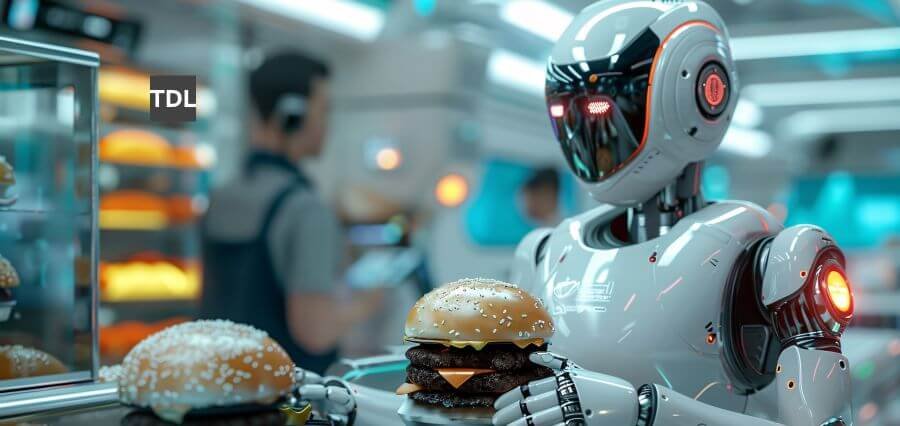Hospitality is at the threshold of a technology revolution. With rising trends in emerging technologies, guest expectations continue to shift, and innovation is no longer a choice but a requirement for hotels, resorts, and other service providers. Embracing technology assists hospitality stakeholders in minimizing complexity, enhancing the guest experience, and competing successfully within a high-velocity, high-change environment.
Application of digital technology in the hospitality sector is revolutionizing conventional models of service provisioning. Ranging from guest individualization to smart data analysis, technological innovation is paving the way for a future age. With the right technology at the right time, organizations are able to gain maximum efficiency, amplify earnings, and build deeper customer loyalty.
Enhancing Guest Experience through Personalization
Technology offers unprecedented guest personalization. Hotels can now use customer analytics and artificial intelligence to forecast guests’ likes, from the ambiance in their rooms to what they eat. Such levels of personalization lead to greater satisfaction and loyalty as the guests feel attended to and valued throughout their stay.
Smart room functionalities and mobile apps are becoming the new standard for delivering hassle-free, personalized experiences. The guest can control room temperature, lighting, and entertainment systems from their phone or voice. These apps not only introduce convenience but also talk about the company’s move towards new-gen user-centric service.
Operational Efficiency through Automation
Daily operations are greatly enhanced through automation. Front desk services, housekeeping activities, and inventory management can be made more efficient using computers, minimizing human intervention and enabling employees to concentrate on more guest-related services. For instance, real-time tracking and department coordination are offered via cloud-based property management systems.
Additionally, robotic automation is being implemented in certain sectors of the hospitality industry. Robots are already used in certain high-end hotels to welcome guests or deliver room service, cutting wait times and introducing novelty. While not a human substitute, these technologies are taking pressure off staffing shortages and improving productivity.
Data-Driven Decision Making
Access to information has transformed hospitality organization decision-making. Instant data collection and processing enable accurate forecasting, pricing, and asset management. Hotel managers are able to track guest activity, taste, and opinion and utilize it in making wise service and operations level decisions.
Predictive analytics will also assist with demand pattern and trend forecasting. Inventory can be optimized for control, marketing can be optimized, and room rates can be set dynamically to achieve peak occupancy and profitability by leveraging history and real-time data. Data-driven is sure to be quick and agile in the competitive environment.
Digital Marketing and Guest Engagement
Internet channels have completely changed the way hospitality businesses interact with customers. Social media marketing, sponsored posts, and influencer partnerships are now all part of brand presence and image. Strong digital marketing strategy assists hospitality businesses in acquiring, converting, and retaining customers in ways previously unimaginable.
In addition, intelligent technologies like chatbots and customer relationship management technologies related to guest communication simplify guest journey communications. Automated customized communication during booking, check-in, and post-stay follow-ups deliver brand consistency. This technology-enabled interaction not only leads to conversion but also creates long-term relationships with guests.
Sustainable Innovation through Smart Technologies
Sustainability is becoming an utmost priority among travelers in the current age, and technology provides the means to achieve green practices. Smart energy management systems, for example, control and optimize energy utilization in hotel operation. Automated lighting, HVAC control, and water management reduce consumption without compromising comfort.
Second, technology-driven electronic check-in and keyless entry eradicate paper use and plastic waste that comes with physical keys. Going green with technology adds not only to green goals but also to brand appeal to eco-conscious guests. Sustainability being the measure of excellence, hopping on the green technology bandwagon is a strategic and moral imperative.
Staff Empowerment and Training through Technology
Use of technology also improves training and employee empowerment. Utilization of e-learning systems gives the employees demand-driven flexible training, which continuously refreshes the employees with the most recent procedures, safety policies, and service standards. This makes the better-informed and confident workforce.
Second, mobile communication devices and collaboration team platforms enable greater internal coordination. Workers can be informed in real time, share resources, and better communicate. The tools enable openness and accountability in operations that, in turn, transfer into improved guest experience and organizational culture.
Conclusion
Technology is not just a tool for an end, but a change driver for the hospitality industry. Guest experience to back-of-house operational efficiency, technology is transforming how to deliver excellent service. But the key to effective implementation of technology is in strategic planning, human design, and continuous innovation.
As the hospitality industry keeps evolving with even more of a digital world, it will be welcoming innovation freely and willingly that will take it to success in the years to come. The hospitality future will be not just of technology, but of how much of it it taps to offer evolving guest needs and evolving business problems.
Read more: From Kitchen to Boardroom: Stephen Moorby’s Journey to Leadership at ROYA Factory




